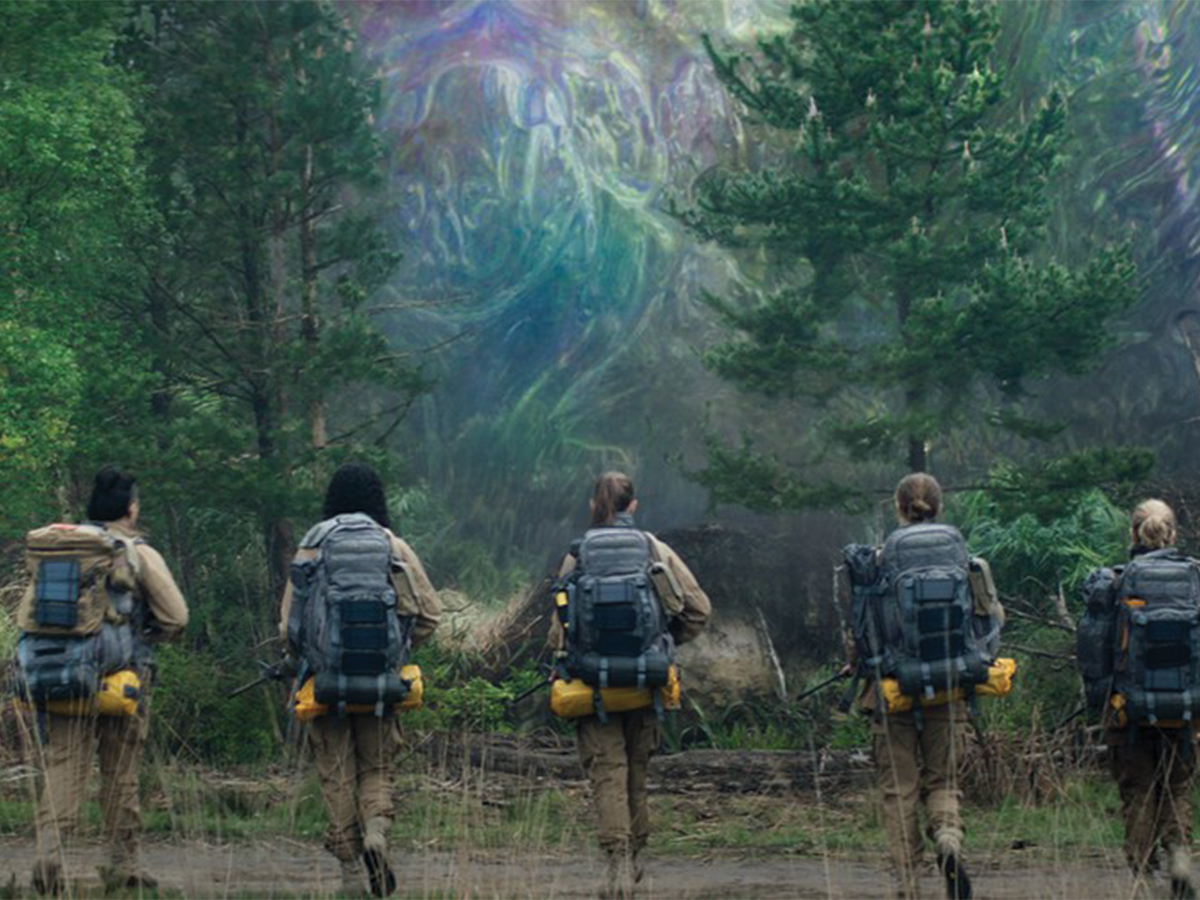
Cells, high-school biology and protagonist Lena tell us, divide and proliferate, creating life as we know it through self-sustaining processes of growth.
But what the hell does it even mean to be alive?
I ask this mostly rhetorically, but also to invite you to consider. To be alive is to have cells, surely, so discount rocks, include fungi, coral, trees, humans. But we’re still at an impasse — I mean, what is life, really, but a really big puzzle whose pieces are just beyond our reach? For some the truth is carnal, others cosmic. So many movies have attempted to address this primeval wonder — most fail, yet others help us fill in some gaps in the plot holes of our existence. I don’t think I’ll ever understand what the hell any of this means, but at least there are stories like “Annihilation” that consider looking at the puzzle from a different perspective.
“Ex Machina” director Alex Garland may not yet be a household name in sci-fi filmmaking alongside luminaries like J. J. Abrams or Ridley Scott, but the 47-year-old has more than proven his guile. (Maybe his success on the periphery of the mainstream might be more telling of his grit as an artist than as another moneybags). Before his directorial debut with “Ex Machina,” he wrote “28 Days Later,” “Never Let Me Go” and “Dredd,” not-too-distant sci-fi and horror flicks with remarkable senses of palpability beyond the harsh landscapes of decay. “Annihilation” is no different in this regard, even with a broader scope. Fortunately, its breadth isn’t groan-inducingly high-concept or skeletal.
The film stars a dedicated Natalie Portman as a professor of cellular biology and former US Army soldier Lena. 12 months ago, her husband, Kane (Oscar Isaac), was deployed on a classified Army mission and hasn’t been heard from since. So imagine her surprise when he suddenly appears at the foot of the stairs in their house. But something’s off — her once-loving, vaguely Southern-accented husband is a hollowed-out shell of his former self. On the way to the hospital, the two are intercepted by a SWAT team which takes them away to a coastal government facility called Area X. It’s there that the plot thickens and Jennifer Jason Leigh’s stoic Dr. Ventress informs her of an otherworldly, iridescent dome aptly referred to as the Shimmer. Lead by Ventress, Lena and three other women of science — paramedic Anya Thorensen (Gina Rodriguez), physicist Josie Radek (Tessa Thompson) and anthropologist Cass Shepherd (Tuva Novotny) — embark on an expedition into the Shimmer to unravel the nature of the phenomenon and resolve their respective internal strifes.
Two things: One, comparing one film to a bunch of others is problematic — it’s reductive and blindsides a film’s individual ambitions and accomplishments; two, this film is unmistakably similar to Andrei Tarkovsky’s “Stalker” and, to a greater extent, Denis Villeneuve’s “Arrival.”
The Shimmer is dense with lush overgrowth, causing structural decomposition on buildings within its enclosure. (In fact, one of “Annihilation’”s greatest strengths is its gorgeous color palette). Like The Zone in “Stalker,” it gives an impression of sentience and defies logic with its ecosystem of anomalies both beautiful and horrific. Structurally, “Annihilation” reads like “Arrival” — a grief-stricken white educator aids the government in penetrating the core of an eldritch entity that sheds light on existence as we know it. Still, the parallels don’t dilute a film this bold.
The team’s goal is to reach the lighthouse at the edge of the Shimmer. The trek is days away, complicated by refractions within the Shimmer that disorient comms devices and mess with their heads. As a sci-fi horror-thriller, it succeeds at building tension and throwing curveballs at the audience. One moment the team will be peacefully keeping watch or investigating flora and, out of nowhere, the next moment they’re ambushed by … things. Revelations deepen the mystery, and even by the end the mystery is one which Garland leaves the audience to unpack.
“Annihilation” feels predictable, but Garland surprises us at every turn. As smart as the ideas are, it doesn’t teeter on pompasity or overindulgence. The ending, as much of a weird, wildly imaginative fever dream of cosmic proportion as it is, feeds the audience with enough information as to not starve us of something to cling to. Paired with the dazzling score by Geoff Barrow and Ben Salisbury, the film crawls through the final leg with eerie measure; the music and visuals warrant sitting through the credits and reflecting on the strangeness.
Verdict: As much as it would seem to be an untimely “Arrival” clone, “Annihilation” is anything but. It’s as intelligent of a genre piece we’ve come to expect from Alex Garland, anchored by compelling themes and the mystique of its setting.








